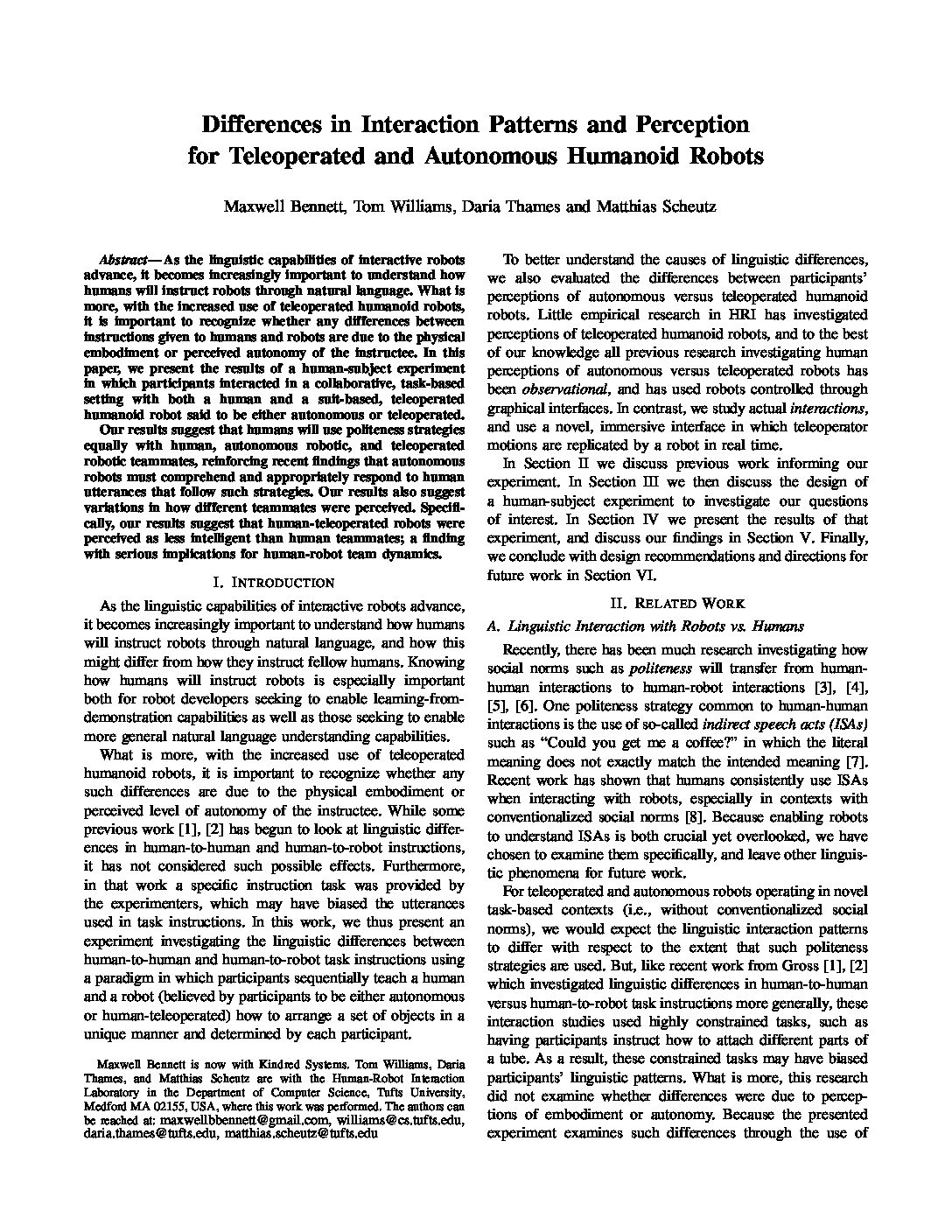Authors
Maxwell Bennett and Tom Williams and Daria Thames and Matthias Scheutz
Venue
IEEE/RSJ International Conference on Intelligent Robots and Systems
Publication Year
2017
As the linguistic capabilities of interactive robots advance, it becomes increasingly important to understand how humans will instruct robots through natural language. What is more, with the increased use of teleoperated humanoid robots, it is important to recognize whether any differences between instructions given to humans and robots are due to the physical embodiment or perceived autonomy of the instructee. In this paper, we present the results of a human-subject experiment in which participants interacted in a collaborative, task-based setting with both a human and a suit-based, teleoperated humanoid robot said to be either autonomous or teleoperated. Our results suggest that humans will use politeness strategies equally with human, autonomous robotic, and teleoperated robotic teammates, reinforcing recent findings that autonomous robots must comprehend and appropriately respond to human utterances that follow such strategies. Our results also suggest variations in how different teammates were perceived. Specifically, our results suggest that human-teleoperated robots were perceived as less intelligent than human teammates; a finding with serious implications for human-robot team dynamics.
